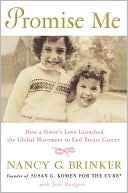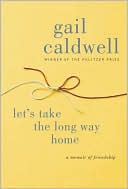My Name Is Bill: Bill Wilson--His Life and the Creation of Alcoholics Anonymous
In this definitive and groundbreaking biography, acclaimed author Susan Cheever offers a remarkably human portrait of a man whose life and work both influenced and saved the lives of millions of people. Drawing from personal letters, diaries, AA archives, interviews — and Cheever's own experiences with alcoholism — My Name Is Bill is the first fully documented, deeply felt account of Bill Wilson and Alcoholics Anonymous.
Search in google:
In this definitive and groundbreaking biography, acclaimed author Susan Cheever offers a remarkably human portrait of a man whose life and work both influenced and saved the lives of millions of people. Drawing from personal letters, diaries, AA archives, interviews — and Cheever's own experiences with alcoholism — My Name Is Bill is the first fully documented, deeply felt account of Bill Wilson and Alcoholics Anonymous. The New York Times By some uncanny chance, the title character of a significant semiautobiographical story written in 1839 by Edgar Allan Poe, who also happened to have been an alcoholic, gave himself the name William Wilson. In My Name Is Bill, truth is sometimes stranger than fiction, though not much stranger than the tale of Poe's narrator, who becomes mad to the point of murder. Cheever's attractive protagonist harmed himself in many ways, but ultimately helped countless thousands. — Michael Kammen
Chapter One: The Wilson House\ The evening before Thanksgiving on November 25, 1895, Mrs. Emily Griffith Wilson, twenty-five years old, very confused and very pregnant, might have been found in the Wilson House hotel kitchen as the afternoon cold settled in outside and the steam formed on the windowpanes. She was preparing to bake an apple pie, cutting the apples and then rolling out the crust, and keeping an eye on the popcorn just warming up in a cast-iron pan over the woodstove. The big north-facing room where she worked smelled of cooking: of flour and the sweetness of apples, of a batch of sugar cookies and the sausage frying for the stuffing. Usually, she found these smells delicious, but this afternoon they were nauseating. Pregnancy ruined everything, she thought.\ Emily could hear the others thumping around upstairs, Grandma Wilson and Gilly, and the rhythmic thunk, thunk of someone splitting wood in the big shed where the sheep and goats were penned in for the winter. Up the hill a dog barked. Out the back windows the kitchen garden, where a few pumpkins still lazed against the cold earth, was framed by the white columns of the porch, the big pine tree, and the road that followed Mad Tom Brook down to the peaked roof of the railroad station. She could hear the trains going through three times each day — the Green Mountain Flyer and the midnight sleeper when she was up late. The track came down from Montreal, past Dorset Pond just a few miles north, then right past the general store and the cheese factory, and then down the valley toward Manchester Depot and Manchester Village on the way to Albany, where you could change for Boston or New York City. Grover Cleveland was president, New York City police had just cracked down on an illicit distillery, and Oscar Hammerstein was packing them in at his Olympia Theater.\ Across the green, as night fell and the pains made it harder for her to stay and work at the kitchen table, Emily could just see the parsonage where she and Gilly were planning to live once the baby was born. Then the lights went on in her parents' little white house with the cheerful red door and the green shutters. They would be over for dinner tomorrow, but the thought of them at prayer in the cozy little parlor where she had grown up made the pains subside for a moment. Not that their life had been perfect — life was always hard — but right now, alone for a moment, she remembered the innocent girl she had once been. Things had seemed so simple then. Slow-moving oxen pulled the great blocks of marble out of the mountains and loaded them onto railroad cars. There was maple sugaring in the spring and apple picking and cider in the fall. There was the General Store, where Mr. Barrows always smiled at her; the town meetings over in Dorset Village; the Grange Hall, where men argued about politics; the blacksmith shop where the family horses got new shoes; and the cobbler where she went for her own new shoes.\ On the other side of the tracks were the marble mills where the blocks were cut into the slabs that were as common as grass all over town. East Dorset marble was the best marble in the world. There was her family's church and another church for the Irish who had come when the Freedleyville Quarry opened. There was school and playing and wonderful books. Emily had always imagined herself as Becky Thatcher in Mark Twain's book Tom Sawyer — adventurous, daring, and a little too smart for her own good. Her family, the Griffiths, were local nobility. They were the wealthiest family in town although they would never say so. Her father, Gardner Fayette Griffith, had fought for the Union Army during the Civil War. He had been at Gettysburg with the Vermont 14th Regiment and helped repel Pickett's charge and win the war for the righteous. He owned the town's waterworks. He and his cousin Silas had the idea of selling wood cut from the forests that blanketed the surrounding mountains, and it had been a very good idea.\ For what seemed like a long time the Griffiths had lived happily in their house on the green with their children, their beloved son Clarence and their daughters Millie and Emily. Everyone knew how smart Emily was. After grade school she had gone off to train at the Normal School over in Castleton, and she had become a teacher in the local one-room schoolhouse. Emily had her heart set on more than teaching, though. "Success, success, success, let that be your watchword!" she exhorted her son years later. Now she exhorted herself. Even then, as she carried that first child through the summer and fall of 1895, she imagined being something greater, something a man might be, perhaps a doctor or a lawyer.\ Emily loved her parents — her father often seemed to be the only person who really understood her. He understood that she was too big for life in their little village. She was aiming for larger things. Her mother was always reminding her that she was a woman and that she should act like a woman, but her father didn't seem to feel that way. She was like him, she told herself. She had high ambitions for everyone around her, ambitions that transcended gender. What her mother called stubbornness she saw as determination; determination like her father's. Even though her father was her best friend, the events of the last few years just seemed to have overwhelmed their friendship.\ First Emily's little brother, Clarence, was sick. There was something wrong with his lungs. He couldn't breathe. Dr. Liddle came over from Dorset and said Clarence had to be sent to Colorado. Of course her parents followed instructions, but it was awful to see the little boy off on the train. Then they got word that the Colorado air hadn't worked. Clarence was dead. Ever since that boy died so far away, and no one knew who was there to comfort him in his last hours, Fayette had been different. Losing his ten-year-old son broke his heart. Even now, she knew her father didn't like complaining. Pregnancy wasn't something she would talk about with him; she had to concentrate on putting her fears aside.\ Fayette Griffith expected that even children would adjust their feelings to life's little practicalities. She remembered the way he had reacted the one time she allowed herself to get sentimental about a farm animal. "Thanksgiving dinner with rousing fires in all the stoves to keep out the zero cold, and plenty of good cheer all around," she remembered forty years later. "The dinners were mostly always turkey. Occasionally we had chicken," she continued, "and once a little young barbecued pig — and that little pig was my pet — and the unusual sight of him made me feel kind of sick and faint." She wasn't allowed to leave the table.\ A handsome Yankee woman with long chestnut hair, Emily couldn't believe how quickly she lay her ambitions aside and did what seemed to be expected of her, embracing marriage and motherhood. She was feeling angry at her husband Gilman, who was already not quite shaping up to be the man she had imagined he could be when they married a year before.\ It was almost an arranged marriage. She and Gilly had known each other all their lives. Her family was no-nonsense and well off and lived on the north side of the green; his family was social and gregarious and owned the Wilson House on the south side of the green. Maybe that was the problem. She had grown up in a house; Gilly had grown up running an inn with his widowed mother, drinking with the guests and entertaining them even when he was a boy. Gilly was a charming man, a personable bachelor who had gone to Albany College in New York State. He had already been made manager of the North Quarry, and Emily had hoped that marriage would turn him into a responsible man.\ Their family history seemed to affect Gilly in a different way than it affected her. At twilight on the night of November 25, as preparations for Thanksgiving dinner animated the big kitchen, she began to double over with the contractions — a kind of pain which dwarfed everything in her previous twenty-five years of life, even the bouts of anxiety that sometimes made her see blackness and feel that nothing was worthwhile.\ The village of East Dorset is still a storybook sort of place. Picturesque but workaday, it's a town that has always been about industry — even if the product was as lovely as marble or as sweet as maple sugar. Its red and white frame houses huddle around a central green in front of a white clapboard Congregational church with a square, eight-pointed spire, in the narrow valley where Mad Tom Brook meets the Batten Kill. Called the Valley of Vermont, this verdant, limestone path in the land lies between the Green Mountains to the east and the Taconic Mountains to the west. A few miles north of East Dorset, at Dorset Pond in North Dorset, the valley narrows until only a few hundred yards separate the two mountain ranges. Mount Aeolus in the Taconic Range, named for its windy summit by a party of nineteenth-century climbers from Haverford College, slopes above East Dorset on the west side, while Bromley Mountain in the Green Mountain Range rises above the town to the east.\ Sugar maples and oaks, pine and spruce trees, line the two village streets. The woods are still filled with birdsong and wildlife, owls hoot at night, and at the end of summer, flocks of geese honk their way across the sky. The sidewalks are paved with the snowy white marble veined in pale gray that comes from the local quarries. These underground shafts crisscross the surrounding mountains hundreds of feet under the rocky soil but occasionally erupt in a white burst against the green surface of the hills.\ At the corner of Village Street and Mad Tom Road stands the Wilson House, still a rambling old dark red three-story building with white trim. Its rooms have been redone with flowered wallpaper and filled with sturdy oak furniture. Facing the rounded shape of Mount Aeolus, the long porch is the baseline for a jumble of clapboard dormers, shutters, and gables above it. Except for the church, it's the largest building in the small town, and it has been an inn since settlers first moved to this narrow valley back before Vermont was even a state, in the eighteenth century.\ By the end of November the brilliant red and yellow of the New England fall is almost over and the trees throw skeleton shadows in the thin winter light. "No pen can describe the turning of the leaves," wrote Rudyard Kipling, who was living nearby in Brattleboro, Vermont, in his beloved house Naulahka and working on The Jungle Book. "The hillsides as far as the eye could range were afire, and the roads paved with crimson and gold....Then a wet wind blew...till nothing remained but pencil-shading of bare boughs, and one could see into the private heart of the woods." In those days between the brilliance of fall and the great snows of the Vermont winter, the air is sharp and cold. The sun disappears behind the mountain and the dark comes filtering down early. Nights are long. By the end of November, the huge piles of stacked firewood are already beginning to shrink, and the smell of snow and woodsmoke and the occasional baking apple pie swirls around the churchyard, past the old schoolhouse and across the brook toward Mount Aeolus and the world beyond.\ Copyright © 2004 by Susan Cheever
Part One: A Rural Childhood1. The Wilson House2. East Dorset3. The Wilson Family and the Griffith Family4. Dorset Pond5. The Griffith House6. The State of Vermont7. Mark Whalon8. Mount Aeolus9. Burr and Burton10. Bertha Bamford11. Lois Burnham12. New York City13. New Bedford and the First DrinkPart Two: Drinking14. France15. The Edison Test16. Brooklyn17. Motorcycle Hobos18. Manchester Airport19. Montreal20. Towns HospitalPart Three: Alcoholics Anonymous21. The Oxford Group22. Akron, Ohio23. 182 Clinton Street24. Not Maximum25. John D. Rockefeller, Jr.26. Stepping Stones27. 334 1/2 West 24th Street28. Trabuco College29. Depression30. Our Common Welfare Should Come First31. Dr. Robert Holbrook SmithPart Four: Life After A.A.32. The Spook Room33. St. Louis, Missouri34. Marty Mann35. 526 Bedford Road36. The Family Afterward37. Carl Jung38. MiamiAfterwordAcknowledgmentsChronologyAppendix: The Twelve Steps and The Twelve TraditionsNotesBibliographyIndex
\ From the Publisher\ "[A] wise, well-reported life story of the man who changed the way the world deals with addiction." \ -- Chicago Sun-Times\ \ \ \ \ \ The New York TimesBy some uncanny chance, the title character of a significant semiautobiographical story written in 1839 by Edgar Allan Poe, who also happened to have been an alcoholic, gave himself the name William Wilson. In My Name Is Bill, truth is sometimes stranger than fiction, though not much stranger than the tale of Poe's narrator, who becomes mad to the point of murder. Cheever's attractive protagonist harmed himself in many ways, but ultimately helped countless thousands. — Michael Kammen\ \ \ Publishers WeeklyThe first half of Wilson's life was a perpetual battle with alcohol; the second, a continual struggle to secure both his day-to-day sobriety and the organization that became Alcoholics Anonymous. Cheever's portrayal of Wilson's story never resorts to hagiography and doesn't dodge the controversies that other biographers have exploited, such as Wilson's womanizing and LSD use. The author of Note Found in a Bottle places greater emphasis on Wilson's rural Vermont childhood; his father's early desertion; his mother's stern, Calvinist nature; and the influence of his few male friends and authority figures. As a boy and adolescent, Wilson bounced among various activities and social groups, seldom sticking with one for long. He tended to seize upon short-term promises of happiness and security, whether a questionable job prospect or, with disastrous consequences, his first alcoholic drink. He grabbed impulsively at the first marriage opportunity, with Lois Burnham, four years his senior, and his drinking severely tested their marriage. In 1935, Wilson's contact with the Oxford Group and its Christian reform philosophy, and with Robert Smith, an Ohio doctor and alcoholic, laid a fragile foundation for the program and fellowship they would build into the worldwide organization for recovering alcoholics. Until his death in 1971, Wilson worked to strengthen the evolution of AA and never entirely abandoned his search for a better cure. Although the compression of so much material disserves Cheever's intentions, the resulting lumpiness is oddly consistent with Wilson's life and character. Agent, Kim Witherspoon. (Feb.) Forecast: The book has a built-in audience (AA claims to have two million members), and could benefit from the publication of an AA book specifically designed for women, The Little Red Book for Women, coming from Hazelden in February. Copyright 2003 Reed Business Information.\ \ \ \ \ Library JournalNot a perfect life but ultimately a success; from a best-selling author. Copyright 2003 Reed Business Information.\ \ \ \ \ Kirkus ReviewsAn earnest but flawed biography of the man Aldous Huxley described as "the greatest social architect of the twentieth century." A vast Alcoholics Anonymous archive, including hundreds of letters, helps novelist and memoirist Cheever (As Good As I Could Be, 2001, etc.) plumb the lifelong drive, intelligence, and self-doubt of AA cofounder Bill Wilson (1895-1971). Growing up in rural Vermont, Wilson witnessed principles of service and egalitarianism in action that he later embodied in AA's famous "Twelve Traditions." But he also felt unmoored when his parents divorced and his mother left him in the care of her father as she pursued a medical degree. Marriage to an educated older socialite fed his insecurity, eased only when he took his first drink while serving in WWI. Over the next 18 years, his growing addiction resulted in countless jobs lost or never pursued. Cheever is at her best in detailing the creation of AA, in 1935, by Dr. Bob Smith and Wilson, who recognized that alcoholism was a disease that could only be countered by a "Power greater than ourselves." The synthesis of ideas drawn from medicine, psychology, and moral reformers such as the Oxford Group and the Washington Temperance Movement provided a flexibility that enabled AA to grow to 30,000 members by 1946. Cheever acknowledges that Wilson was "not the stuff of saints," particularly after turning over AA to elected representatives in 1956. (He used his newfound freedom to experiment with LSD, Oujia boards, and extramarital relationships.) Her own experiences as a recovering alcoholic (see Note Found in a Bottle, 1999) deepen the author's insight into AA's philosophy and Wilson's struggles, and she writes lyrically about theenvironments in which her subject sometimes took refuge from his fame. But Cheever settles too often for cliches ("We are the most puritanical country on earth, and the most profligate"), and although she tells readers about Wilson's charisma, she does not make us feel it. Takes the measure of Wilson's achievement, but not his mesmeric personality. (b&w illustrations, not seen) Agent: Kim Witherspoon\ \








